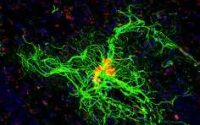People with ASD risk being manipulated because they can’t tell when they’re being lied to
A new study shows that the ability to distinguish truth from lies is diminished in people with autism spectrum disorder (ASD) – putting them at greater risk of being manipulated.
Researchers, led by Professor David Williams of the University of Kent, found that lie detection ability is ‘significantly diminished’ in those with a full ASD diagnosis. It is also related to how many ASD traits people in the general population have—the more traits, the poorer the deception detection ability.
Professor Williams, of Kent’s School of Psychology, and researchers from four other universities in the UK and US conducted experiments with participants exhibiting varying degrees of ASD and compared them to those who were deemed ‘neurotypical’ or not displaying autistic patterns of thought or behaviour.
Participants were shown a number of videos of people responding to questions about their earlier participation in an experiment during which they had an opportunity to cheat by looking at an answer sheet while the experimenter was out of the room. All the people in the video denied cheating, but some of them had actually looked at the answer sheet. Participants had to judge whether the people in each video were lying or not.
In one video shown to participants a liar responds ‘I guess no’ to the question ‘did any cheating occur when the experimenter left the room?’. Those with a diagnosis of ASD and those from the general population with a high number of ASD traits found it difficult to make an inference about deceit, even when such cues were available.
The researchers suggest that limited social engagement among people with ASD, as well as neurotypical people with a relatively high number of ASD traits, may result in a failure to learn the social cues that indicate deceit. It is important to consider whether training individuals with ASD to detect behavioural indicators of lying.
Source: Read Full Article


